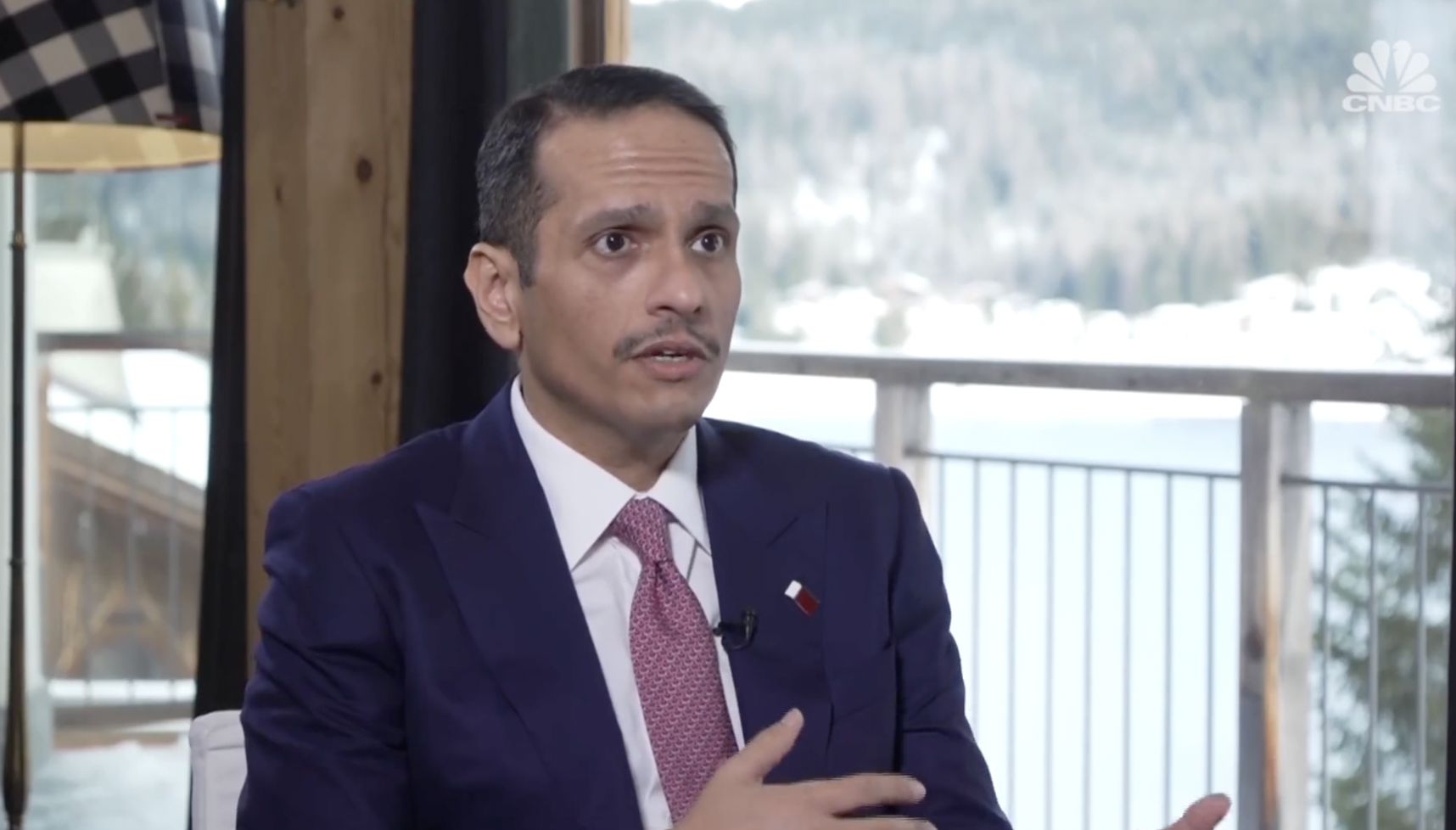The drop in Russian gas imports to Europe in turn strengthened Qatar’s role as a top exporter of liquified natural gas.
Qatar does not support a “forgive and forget” approach with regards to the Russian invasion of Ukraine, Foreign Minister Sheikh Mohammed bin Abdulrahman Al Thani said, clearing up previous remarks by a top Qatari official that appeared to spark anger.
Speaking to CNBC, Sheikh Mohammed was asked about remarks made by Qatar’s Energy Minister and CEO of oil giant QatarEnergy, Saad Sherida Al Kaabi, in which he said Europe is likely to return to Russian gas.
“We’re all blessed to have to be able to forget and to forgive. And I think things get mended with time… they learn from that situation and probably have a much bigger diversity [of energy intake],” Al Kaabi said last week.
“But Russian gas is going back, in my view, to Europe,” he added.
However, the Qatari foreign minister appeared to sway his country away from such sentiment, saying “it is not” the official position of the state.
“First of all, politically speaking, when we are talking about the situation and the war, Qatar has a very clear political stance on this: we don’t accept the invasion of another country.”
“We don’t accept threatening by force or the use of force, we don’t accept civilians to be hurt. And we have been demonstrating this throughout our votes within the United Nations,” the top diplomat said to CNBC’s Hadley Gamble.
“Our message to the Russians, to the Ukrainian has been always … these kinds of differences and disagreements shouldn’t be resolved in a battlefield, they should be resolved through dialogue,” Sheikh Mohammed underlined.
Europe has long been Russia’s top buyer for the majority of energy products, especially natural gas. In reaction to Moscow’s invasion of Ukraine, EU nations have drastically curtailed their imports of Russian energy supplies and imposed sanctions on the country.
Since, European governments and oil and gas executives have scrambled to look for new energy sources and alternative suppliers as a result of the increase in energy costs brought on by the reduction in Russian imports.
The choice of Europe’s energy policy, according to Sheikh Mohammed, should be left to the region itself, further expanding on his response centred around the energy minister’s comments.
“Actually it is the European decision,” he said. “At the end of the day, from our perspective and our policy, as state of Qatar, we never politicise the energy. We see that food, medicine, energy, those are items that need to be protected, because they are for the people, they are not for the government or for political reasons.”
While emphasising that the war is not the only cause of Europe’s problems, he noted that the war had made the continent’s energy problems more dire.
The minister referred to an excessive energy transition that downplayed the significance of fossil fuels while placing an undue emphasis on renewable energy sources, saying that “it has been for a very long time, policies … were not realistic.”
QatarEnergy and the US multinational ConocoPhillips announced early January a deal to sell two million tonnes of liquefied natural gas (LNG) to Germany for at least 15 years starting in the year 2026.
“[The agreements] mark the first ever long-term LNG supply agreement to Germany, with a supply period that extends for at least 15 years, thus contributing to Germany’s long-term energy security,” Al Kaabi said at the time.
As for Qatar and Russian relations, the Qatar Investment Authority currently owns about 19% of the major Russian oil company Rosneft and intends to keep making investments there.
Qatar’s stance on Russia-Ukraine conflict
Since the onset of the Russian-Ukraine crisis on 24 February, Qatar has held various phone calls with leaders of both countries.
In March 2022, Sheikh Mohammed travelled to Moscow where he met with his Russian counterpart Sergey Lavrov.
In a joint press conference with Lavrov at the time, the Qatari foreign minister condemned “everything to the contrary” of the United Nations Charter.
In a statement, Qatar’s foreign ministry in October said that it was following “with great concern” the developments with regards to the ongoing Russian-Ukrainian crisis.
The Gulf state has placed great emphasis on the “necessity of respecting Ukraine’s sovereignty and territorial integrity within its internationally recognised borders and pursuing dialogue as a way to resolve the crisis.”
Russia’s President Vladimir Putin stated over the weekend that the dynamics of the conflict in Ukraine were ‘favourable’ and that everything was proceeding according to the defence ministry’s “plan”.







